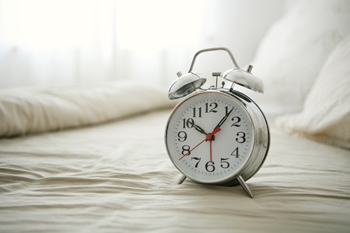Each of Your Organs Has Its Own Clock
Disruptions to our circadian rhythm, the 24-hour clock that drives sleeping and wakefulness…by jet lag or shift work or eating at the wrong time…[may] contribute to obesity, diabetes and digestive conditions like colitis.
Each organ operates on its own internal clock, producing enzymes and molecules at different levels depending on the time of day; the brain works to make sure all the clocks are synchronized. Dyssynchrony between the brain and the rest of the organs, or between individual organs, can lead to problems. For example, if the pancreas is out of sync with the liver, insulin production may be too low or too high.



Ok, let’s suppose all the organs are out of whack. How do you get the clocks all restarted so everyone is in the same time zone?
I second Bruce’s question.
Maybe that’s why adequate sleep is so important. Keeping your mind and body rested seems like the best way to synchronize your organs with your brain.
I was reading somewhere that sleep is even more essential than food; you die of sleep deprivation faster than dying of hunger.
All of my anecdotal evidence points to that conclusion.